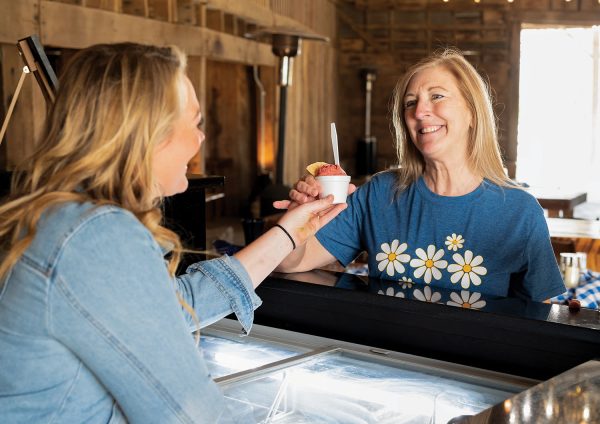Chavez’s story: Trying to educate peers about cultural differences
November 19, 2002
Mexicans are dirty and worthless.
Hispanic people are nasty immigrants that have no place in the states.
These are two thoughts that make Elizabethtown junior Joy Chavez smile. She thinks it’s funny that people could really believe in stereotypes like these.
Growing up in California, Chavez, whose grandparents were Mexican and Indian, celebrated Mexican holidays like Cinco de Mayo (independence day for Mexico) and learned hat dances at her public school. She said the heavily Hispanic-populated town she lived in was always a place of learning and celebration of culture.
“I know it seems odd we would celebrate that in California, but it was all around us,” Chavez said. “I grew up listening to Spanish, around students speaking Spanish and most of the schools in my area were Spanish names.”
After 14 years of living in a “Mexican friendly” environment, Chavez’s mother died. This left her with her father who she couldn’t live with because of his disability. So she moved to Elizabethtown to live with her aunt and uncle.
She hated it.
She thought everyone in Kentucky was small-minded and horrible.
As far as she was concerned, Kentuckians weren’t cultured, and they had no idea what was out there in the world.
“It was such a culture shock for me,” she said. “But after a while, I realized it wasn’t anyone’s fault they didn’t experience different cultures.”
Chavez decided she was lucky to have been in different places and to have experienced different things. The occasional “dirty Mexican” joke still stung, but she had to remind herself that some people weren’t as educated and cultured.
“I remember one time this guy came up and started telling this joke about worthless Mexicans or something, and I was like, ‘Do you really think that?'” Chavez said. “He thought it was just a harmless joke, and no one at my table really knew I was Mexican, but they found out pretty quick!”
Her strong cultural identity has given Chavez the platform to begin looking into other people’s way of life. She declared folk studies as her minor so she could look at many different groups of people.
Chavez began her research into groups of people by looking at her friends. She started a journal at the beginning of this semester in which she would write a question and then pass it around to her friends so they could record their answers. So far she has learned a lot about the way her peers think, stories they have heard and things in their life that have made an impact on them.
She thinks it is important to get to know people of all races and ages.
“I think sometimes Americans have taken a lot for granted because we have always had things handed to us in some way, shape or form,” Chavez said. “We need to be more open.”
Although her fight against Mexican and Hispanic stereotypes will rage on, there is one stereotype that Chavez finds hard to quash. She does drink a lot of tequila.
“I can drink anyone under the table when it comes to tequila,” Chavez said. “The Mexican comes out, and I start rattling off Spanish. That’s when my friends know I’m drunk.”



















![Megan Inman of Tennessee cries after embracing Drag performer and transgender advocate Jasmine St. James at the 9th Annual WKU Housing and Residence Life Drag Show at Knicely Conference Center on April 4, 2024. “[The community] was so warm and welcoming when I came out, if it wasn’t for the queens I wouldn’t be here,” Inman said.](https://wkuherald.com/wp-content/uploads/2024/04/smith_von_drag_3-600x419.jpg)





